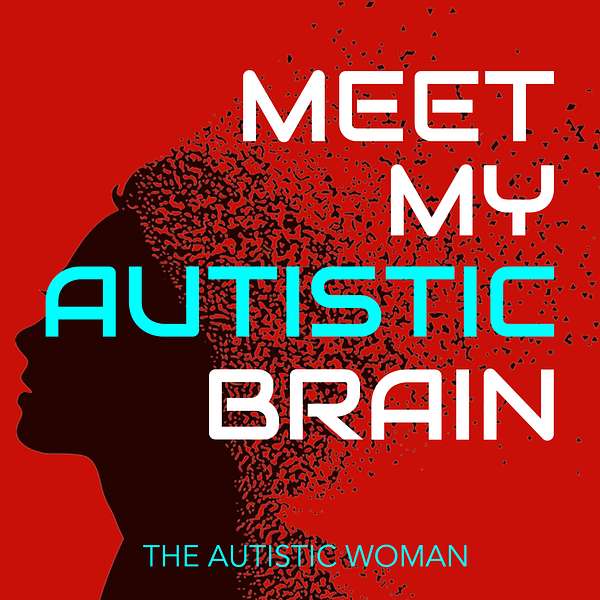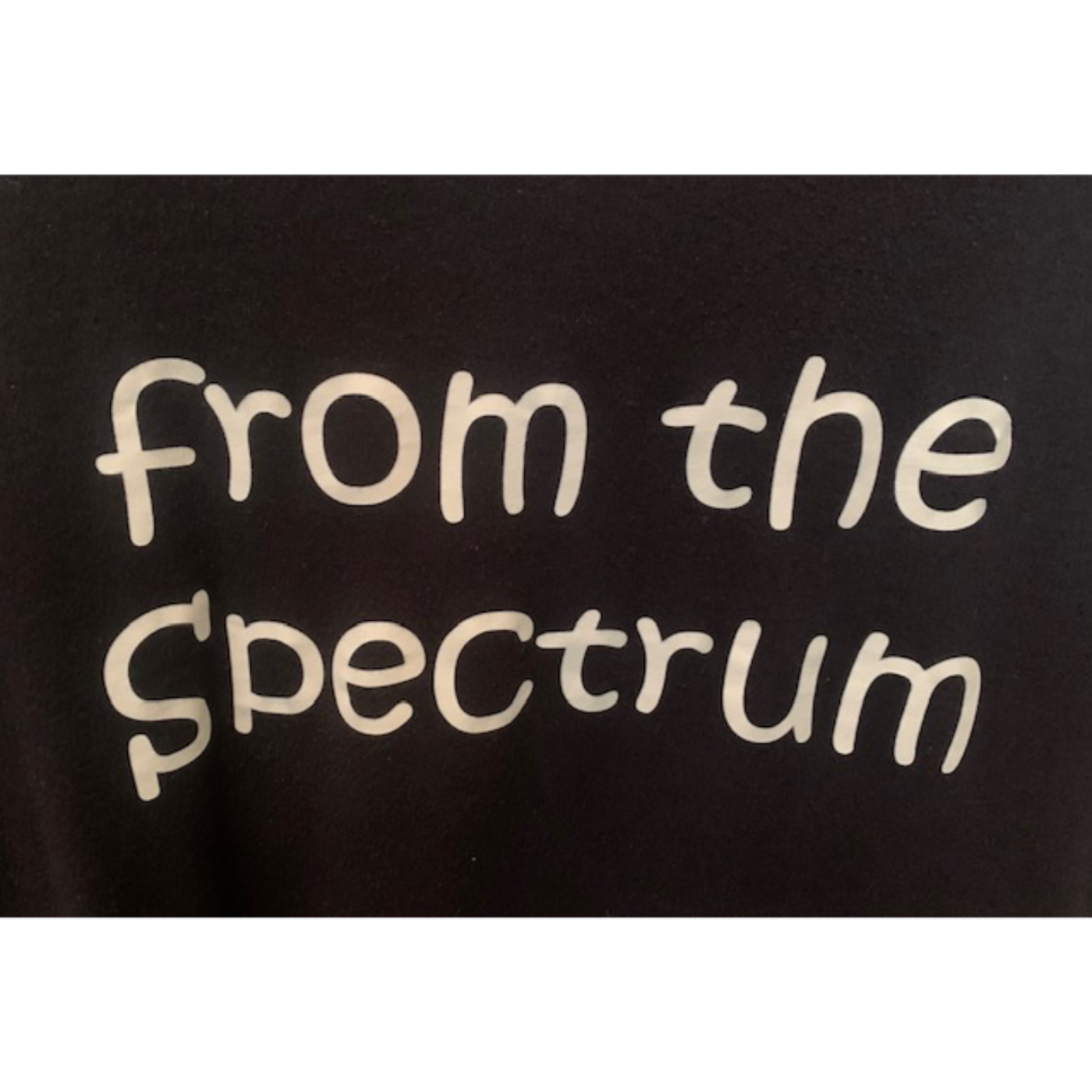
Meet My Autistic Brain
What is it like to find out late in life that you are autistic? The Autistic Woman talks about life experiences and how autistic traits affect her as an adult. You'll hear personal stories, opinions about research and the importance of autistic voices. Includes some fun stuff too and interviews of autistic guests! This podcast is primarily for adult autistics and their family and friends. It's one of the top 0.5% most popular shows globally as ranked by Listen Score with more than 1,000,000 downloads.
Meet My Autistic Brain
The Double Empathy Problem
The old thinking was that neurotypicals understand autistics but we don’t understand them. Modern research dispels this myth and empathy may be the key.
Sunsama free trial: https://try.sunsama.com/xi4blkokndgk
RATED IN THE TOP 0.5% GLOBALLY with more than 1,000,000 downloads!
If you are an autistic person who has written a book about autism or if you have a guest suggestion email me at info@theautisticwoman.com.
Instagram
Ko-fi, PayPal, Patreon
Linktree
Email: info@theautisticwoman.com
Website
Double Empathy Problem Transcript
What is the double empathy problem?
The double empathy problem is a theory that whatever difficulties autistic people have understanding and empathizing with non-autistic people are not due to an empathy deficit, but rather to a breakdown in mutual understanding.
The double empathy theory proposes that communication and empathy is a two-way street. Rather than assuming that empathy flows only from neurotypical individuals to autistic individuals, it says that both can face challenges.
Both autistics and neurotypicals may have difficulties understanding each other's perspectives and experiences.
An autistic person might find it a bit tricky to read non-verbal cues, like body language and facial expressions. The same thing happens in reverse! Neurotypicals might struggle to grasp the direct and honest communication style of someone autistic. I would like to point out that neurotypicals have trouble understanding autistic body language.
——————
What brought this about?
There was some research in the past that suggested that autistics lack a theory of mind. One researcher defines theory of mind as: An intuitive understanding of our own and other people's minds or mental states, including beliefs and thoughts.
The mind-blindness hypothesis as theory of mind is sometimes called is strongly criticized by the scientific community because for one reason the results can’t be replicated. The tasks used to test theory of mind focused on an autistic’s ability to forecast the behavior of a neurotypical. They did include non-verbal individuals in the studies. Instructions were spoken and whether they were clear to autistic participants was not considered. Oh and they only tested children.
A majority of researchers consider the theory of mind to be now discredited.
————
In 2012, Damian Milton, an autistic autism researcher, came up with the theory of the double empathy problem.
Milton argued that the traditional view of autism, which sees it as a deficit in empathy, is too simplistic. He suggested that autistic people may simply have different ways of expressing and understanding empathy.
Milton pointed out that most psychological theories of autism focus on deficits which don’t fully explain the social difficulties experienced by autistic. He said these difficulties are better explained by the double empathy problem because it recognizes the different ways that autistic and non-autistic people communicate.
He called it a problem of mutual misunderstanding.
What are the causes of the double empathy problem?
There are a number of factors that can contribute to the double empathy problem, including:
- Differences in communication style: Autistic people may be more literal in their interpretation of language, and they may have difficulty understanding the nuances of non-verbal communication. Non-autistics often have difficulty interpreting autistic communication.
- Differences in social conventions: Some autistics may not make eye contact while others might stare. Some may not know how to interpret neurotypical social cues such as facial expressions or tone of voice. Non-autistic people may be more likely to misinterpret autistic people's behaviors as being rude or uncaring. Non-autistic people often interpret autistic facial expressions and tone of voice in a negative way.
- Differences in ways of thinking about the world: It’s said that autistic people may be more focused on details and less focused on the big picture although I find that to be untrue in all cases. Autistics may be more interested in systems and patterns. Neurotypicals may be prone to thinking in generalities, vagueness and innuendo.
The double empathy problem can have a significant impact on the lives of autistic people. It can make it difficult for them to:
- Form relationships
- Get a job
- Participate in society
- Express themselves
- Understand their own emotions
The double empathy problem can also lead to feelings of isolation, frustration, and anxiety.
—————
Here I will digress for a moment using this example:
When I was young I went to a parochial school and was taught religion. I attended church daily during the school week and on Sundays. My beliefs formed and were the same as the others within my church. I pretty much knew what they were thinking about a variety of subjects.
I’ve since examined my beliefs and modified them based on my personal experiences, and based on logic as well. Now when I talk to someone who follows the religion I learned about I have little idea what they’re thinking. In fact, when they express a belief that is different than mine I feel like they are missing what is obvious to me. They have absolutely no clue as to what I’m thinking. I feel they would be shocked to find out.
Within most groups, like churches, friendships, family, clubs etc there is an understanding of the others’ theory of mind. Often people who congregate have the same or similar thoughts and beliefs. I don’t think this was accounted for in research about theory of mind.
Think about your own experiences and see if this is true for you.
——-
Another digression is this. As autistics who mask we are continuously studying neurotypicals to understand their thoughts and behaviors so we can imitate them.
A huge number of us read many books on psychology and relationships. We may not stand in the shoes of a neurotypical however we have some ideas about how their minds work.
The majority of neurotypicals do not learn about the autistic mind. If they did, and if they understood autism, would there be a double empathy issue?
———-
Here’s another reason theory of mind doesn’t add up yet the double empathy problem does is:
If autistic people lack a theory of mind then two autistics speaking to each other would logically be challenging. Yet we often find the opposite to be true.
———
The double empathy problem has been supported by a number of studies. One found that autistic people and non-autistic people were equally accurate at understanding the emotions of others, but that they differed in how they interpreted these emotions.
Autistics are more likely to focus on the literal meaning of words and actions, while neurotypicals are more likely to take into account the context and social cues. Non-autistic people may be more likely to misinterpret autistic people's behaviors as being rude or uncaring.
The double empathy problem has important implications for our understanding of communication. We can be aware of the different ways that autistic and neurotypicals communicate and think. There shouldn’t be an assumption that autistic people are incapable of empathy.
Here is some advice I read about things that have been suggested that would help with communication between autistics and neurotypicals. As you might notice, it’s about how neurotypicals can better communicate with autistics:
- Be clear and direct in your communication.
- Avoid using jargon or metaphors.
- Be patient and understanding.
- Give autistic people the time and space they need to process information.
- Ask questions to check for understanding.
- Be willing to learn about autism and how it affects people.
I have a concern that some of these might sound condescending.
I think it would serve us best to describe our communication style, like:
Autistics:
- Think logically and literally
- Often are creative and think outside the box
- Are solution oriented
- Are black and white thinkers
- May be unfamiliar with some metaphors
- Rarely read between the lines
- Don’t see the need for small talk
- Take time to process what others say
- Search for the right answer
- Prefer specifics
The double empathy problem is a complex issue, but it’s one worth understanding. Both autistic and neurotypicals might have challenges empathizing with each other. The theory takes the sole responsibility for effective communication from the autistic person and puts it where it belongs—on both.
Reach out to me by email at info@theautisticwoman.com or you can contact me on Twitter @anautisticwoman. I enjoy hearing from you. Tell your family and friends about the podcast so others can learn what it’s like to be autistic.
I’m appreciative of the support you’ve given me on Ko-Fi, PayPal and Patreon. It makes a difference in whether I can continue to provide content for the podcast. Thank you!
If you haven’t contributed yet remember that you can pay less than 10 cents per episode by donating only $10. Check out links in the show notes to see how you can help. I’ve included a link for $5 off your purchase of Govee lights.
This is a labor of love in its third year now rated in the top 1% globally.
This has been Meet My Autistic Brain. I’m the Autistic Woman. Slava Ukraine.
Podcasts we love
Check out these other fine podcasts recommended by us, not an algorithm.

Atypical: The Podcast
The Atypical Crew

